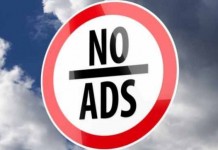 There have been lots of articles and comments regarding Rupert Murdoch’s views on making online news pay. Many commentators have suggested that putting the news behind a pay wall is bound to fail. I’m not so sure that Rupert is wrong. If we want original news reporting (i.e., news origination) and in-depth reporting rather than just the 10-second blurb TV gives us, we need to pay for it. Newsgathering is not free and costs need to be covered.
There have been lots of articles and comments regarding Rupert Murdoch’s views on making online news pay. Many commentators have suggested that putting the news behind a pay wall is bound to fail. I’m not so sure that Rupert is wrong. If we want original news reporting (i.e., news origination) and in-depth reporting rather than just the 10-second blurb TV gives us, we need to pay for it. Newsgathering is not free and costs need to be covered.
I subscribe to the New York Times. Daily delivery runs me about $50 per month. I am willing to pay for the subscription because I want to first know what is actually happening in my world before I start listening to the pundits tell me what those facts mean. I can’t imagine relying on Glenn Beck, Rush Limbaugh, Stephen Colbert, Ariana Huffington, or Al Franken for the facts of what is happening in my world.
I rely on the New York Times, The Economist, the Wall Street Journal, and similar papers because of the reputation for original reporting that they have built over the decades. Because I cannot do the original investigation myself, I do not know with absolute certainty that what they report as fact is truly fact — no more so than I can know any fact that I have learned from any source outside my own original investigation; instead, I rely on the reputations they have built as fact-gatherers. Similarly, I rely on the opinion shapers — the Becks, Limbaughs, Wills, Pitts’, Harrops, and other op-ed folk — to add interpretation from a philosophical or biased perspective to those facts the NYT, WSJ, and The Economist and the like have reported.
Sources like the Drudge Report are aggregators not originators; that is, they take from already published sources their “news.” Consequently, relying on an aggregator for one’s news does not address the problem of paying the originator of the news. News aggregators don’t have paid investigative, professional reporters in Des Moines, Iowa, let alone in Tajikistan — they are not news originators.
How can we rely on the veracity of the reported “facts” if the news originators are forced to give their content away free online? Ultimately, something has to give in a free economy; in the case of news, it is credibility and accuracy that ultimately gives. We are beginning to see the effect that free has on veracity and accuracy of reported “facts” online if a recent study of online magazines is to be believed.
The Columbia Journalism Review, as reported by the New York Times, recently surveyed the editing and fact-checking practices of magazine websites. Of the 665 magazines surveyed, 59% copyedit less rigorously or not at all the online content and 43% do less rigorous to no fact checking of the online content. The likelihood of these numbers decreasing with free content probably is nil; it is more likely that the numbers will increase.
Yet our discussions about our surrounding world have to start from some base. Granted they can start from one’s imagination in which we simply declare certain things as truth, but that seems to me to be a poor base from which to decide anything. News aggregators won’t have anything to aggregate and political and social commentators anything to comment on in the absence of news originators.
Not all newspapers either can be or should be behind paywalls. For example, my hometown newspaper is generally bereft of any real news origination and at best is worth $10 a year (although it costs closer to $200 a year by subscription), but that is because it lacks any real credibility and because most of its efforts are as a news aggregator, not originator. But there are certain newspapers, those that are true news originators, whose efforts should be behind a paywall. Their credibility, earned over decades of origination efforts, not only deserves financial support but warrants such financial support.
It has been reported that Internet and TV news (local and national/cable) are the leading sources for news today. Newspapers run distantly behind. On the surface, this indicates that paywall support is undeserved by newspapers. But the reality is different. TV news operations are scaling back on reporting; ABC News, for example, recently announced it was cutting its news gathering staff by one-third. Many of the covered stories originate in newspaper exposés, not in original TV reporting, and there is a significant difference in the depth of analysis provided in a 10-second TV blurb compared with a multipage newspaper article. Besides, TV news is behind a paywall; just an indirect one. Most of us get our TV via cable/satellite for which we pay a monthly fee. The cable/satellite operators pay the TV channels a per subscriber fee. And we also pay those same cable/satellite providers for Internet access. So why not also pay news originators for their work? Why should it be free just because it is on the Internet?
Many Internet news sites are nothing more than aggregators, not original news reporters. Without the originators, there would be no aggregation possible. More important, perhaps, are the findings of the Columbia Journalism Review. Its survey (see the New York Times article linked earlier) found that 16% of the respondents didn’t fact check online-only content at all and that of those that did fact check online content, 27% used a less-stringent process than they used for their print offering. How reliable can those sources be? Would you want your lawmakers or your doctors to make decisions based on unverified information?
Consequently, I’m inclined to think that Rupert is right. I’m not sure that the New York Post is worthy of being behind a paywall, but I have no doubt about the worthiness of, for example, the Wall Street Journal, the Financial Times, The Economist, and the New York Times — that is newspapers with high credibility and well-deserved reputations as news originators. Keeping news originators alive and healthy is important to keeping alive and healthy democratic institutions.
Perhaps Rupert is right this time.
Editor’s Note: Rich Adin is an editor and owner of Freelance Editorial Services, a provider of editorial and production services to publishers and authors. This is reprinted, with permission, from his An American Editor blog. PB


































There will always be “casual” news, news largely without in-depth coverage and detail, that can be had by any source. But for more specific information, for information on special topics and specialty-interest subjects, people demonstrate that they are willing to pay to get that desired info. That’s what subscription services are about, and there’s no reason to expect that they can’t be translated to the web.
There are, of course, ads to pay for content, and there may be other ways of paying for content that haven’t been devised or perfected yet. We’ll see what pans out the best in the long run. But subscriptions work, and they’ll continue to do so for many news sources.
There are news sources for which consumers are willing to pay, I believe. However, with a few exceptions, publishers seem to have chipped away at the more “expensive” brand values (original reporting, proofreading, in-depth features) in order to maximize on advertiser presence. Suspect that what many publishers will find that the level of quality and personality which attracted advertisers is not necessarily the same as the one which attracts readers. There may need to be a return to basics with the models.
You suggest, Rich, that good, investigative, fact-based, news reporting, costs money; therefore, subscribers ought to pay to read the results online.
But consider that if costs were all, then broadcast news should not exist. TV news costs a lot more than paper-news; yet it gets along with ad revenues alone.
Similarly, the very example of print gives your basic theory the lie: newspapers, the fount and bastion of the sort of reporting you admire and think we all should pay for, sell for almost nothing. The cost of the daily paper today is the same (inflation-adjusted) as it was 100 years ago, when it cost a nickel. Playboy and Maxim and Cosmopolitan magazines, on the contrary, cost 2-3 times as much. To follow your reasoning, the New York Times ought to cost somewhere in the neighborhood of $10/copy. Are you willing to pay that? I didn’t think so.
Newspapers are not, after all, in the ‘news’ business at all. The per-copy costs merely cover (most) of the printing fees and are nominal; most of their revenue and the money to pay the top reporters comes from ads.
Newspapers are in the advertising business. And they are doing a very bad job of it, so far. online.
— asotir
The newspapers problem isn’t the internet itself, but started years before that. The problem is that if they erected a paywall then somebody else would just rewrite the story: “NYT reports that…” The problem is that they gave away the copyright on their stories when they turned a blind eye to this (and sometimes did it themselves). So the decline in the newspaper business started long before the internet.
Also, regarding NYT and WSJ. I do not pay for them, nor would I. From what I can judge of their reporting on areas of which I am knowledgeable their reporting is bad. I suspect most people trust them mostly out of habit. The Economist still has quality, and as long as you take anything they write with a pinch of salt they are worth a subscription.
@asotir: You suggest TV-based ad revenues aren’t enough to support TV news. I doubt that. Ad revenues for television are pretty high, even for local stations… they can more than cover the news they present, keeping in mind that TV news is, by nature, limited by the time format and therefore not detailed or comprehensive.
Your point about newspapers versus magazines is to the point: Magazines are specialty products, and so, have more of a draw to people interested in those specialties. General news may never have that draw, except in a few cases, but specialty news has it. That’s where the revenue will come from, as opposed to the general news services.
@Johan: You raise a good point. Lax copyright and “fair use” guidelines have taken most of the value out of general news, specifically because anyone can “cut and paste” it to anyone else’s content. But as news services move to an all-online service, I’d expect they will seek to change those rules, and prevent other sources from using their content, or force them to pay for every use of their content. Maybe that will be where their revenue will come from…
I read the newspaper avidly. It is my one form of continuous fiction.
— Aneurin Bevan
When are people going to stop perpetuating the myth of an “objective” press. If the internet has proved anything, it is that these traditional news organizations think they are the Ministry of Truth. Most “in depth” articles are just advertisements. It has been that way since the middle of the 1800’s. One who believes in the Bible might say that the news agencies are “the mouth of the Beast”.
I trust the EFF more than the NYT any day of the week and twice on Sunday.
@Steve Jordan: “Lax copyright”? Are you completely insane? Copyright is more oppressive today than at any period in history. Let us hope that Rupert — luddite geezer that he is — is never allowed make his evil machinations a reality. The First Amendment is much more important that Rupert’s paycheck.
I’ve spent the past ten years hearing about how advertising makes everything free. I think, ultimately, someone has to pay for something…otherwise who pays for the advertising.
You’re dead-on-right that real news is not free to produce. And TV is a great case study for what happens to news when its free and advertiser-supported (it’s all ‘the latest blonde murder’ all the time).
The world is big enough to support multiple revenue models and I’m sure there will continue to be free news. But yes, someone has to pay and reliance on advertising has got to create some biases.
BreakthePaywall! is a free add-on for Internet Explorer (Firefox coming soon!) that simplifies using the various methods for circumventing website paywall restrictions.